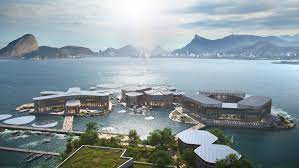
Breaking News
 Powerful Pro-life Ad Set to Air During Super Bowl 'Adoption is an Option' (Video)
Powerful Pro-life Ad Set to Air During Super Bowl 'Adoption is an Option' (Video)
 Even in Winter, the Sun Still Shines in These Citrus Recipes
Even in Winter, the Sun Still Shines in These Citrus Recipes
 Dates: The Ancient Fertility Remedy Modern Medicine Ignores Amid Record Low Birth Rates
Dates: The Ancient Fertility Remedy Modern Medicine Ignores Amid Record Low Birth Rates
 Amazon's $200 Billion Spending Shock Reveals Big Tech's Centralization Crisis
Amazon's $200 Billion Spending Shock Reveals Big Tech's Centralization Crisis
Top Tech News
 SpaceX Authorized to Increase High Speed Internet Download Speeds 5X Through 2026
SpaceX Authorized to Increase High Speed Internet Download Speeds 5X Through 2026
 Space AI is the Key to the Technological Singularity
Space AI is the Key to the Technological Singularity
 Velocitor X-1 eVTOL could be beating the traffic in just a year
Velocitor X-1 eVTOL could be beating the traffic in just a year
 Starlink smasher? China claims world's best high-powered microwave weapon
Starlink smasher? China claims world's best high-powered microwave weapon
 Wood scraps turn 'useless' desert sand into concrete
Wood scraps turn 'useless' desert sand into concrete
 Let's Do a Detailed Review of Zorin -- Is This Good for Ex-Windows Users?
Let's Do a Detailed Review of Zorin -- Is This Good for Ex-Windows Users?
 The World's First Sodium-Ion Battery EV Is A Winter Range Monster
The World's First Sodium-Ion Battery EV Is A Winter Range Monster
 China's CATL 5C Battery Breakthrough will Make Most Combustion Engine Vehicles OBSOLETE
China's CATL 5C Battery Breakthrough will Make Most Combustion Engine Vehicles OBSOLETE
 Study Shows Vaporizing E-Waste Makes it Easy to Recover Precious Metals at 13-Times Lower Costs
Study Shows Vaporizing E-Waste Makes it Easy to Recover Precious Metals at 13-Times Lower Costs
Here's what the world's first floating city in Busan, South Korea, could look like

Key Points
The United Nations, a floating city developer firm called Oceanix, and the South Korean city of Busan on Tuesday unveiled the prototype for a floating, sustainable version of the key shipping hub.
Since 1880, the average global sea level has risen between eight and nine inches, and could rise another 12 inches by 2050.
The floating city prototype is made of interconnected platforms that total 15.5 acres in surface area. Each floating, modular piece of the city is designed for a specific use, like living space, research facilities or lodging.
The United Nations, a floating city development firm called Oceanix, and the South Korean city of Busan on Tuesday unveiled the prototype for a floating, sustainable version of the key shipping hub.
Floating cities could be a way to mitigate the effects of sea level rise caused by climate change. "Sea level rise poses an existential threat for some small islands and some low-lying coasts," according to policymaker-summary remarks in the most recent IPCC report out from the United Nations at the end of February. Rising sea levels threaten coastal electricity and transportation infrastructures, according to the report.

 Smart dust technology...
Smart dust technology...

